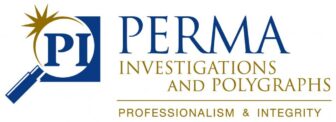U.S. Government studies have concluded that the polygraph examination, conducted properly by a qualified examiner, is 89 to 95 percent accurate. It is the most accurate tool available today for determining truth or deception. These statistics do not include “No Opinion” results in which no opinion can be made from the polygraph charts.
What are some of the uses of a polygraph examination?
- Eliminating suspects
- Recognizing false complaints
- Testing informants to determine the veracity of information provided
- Providing a new “key” to an investigation when all other standard investigative techniques have been exhausted
- Narrowing the focus of inquiry
- Gathering additional information and evidence
- Assisting to focus the investigation on particular suspects
- Professional misconduct allegations
- Theft/Fraud investigations
- Civil investigations
- Testing the veracity of affidavits/statements
- Investigating malicious and false allegations
- Unfair dismissals
- Drug usage by athletes
- Disputes of fact
- Sexual harassment claims/allegations
- Fishing tournaments
Can an employer have an employee take a polygraph examination?
NOTE: For suspected employee thefts, see the requirements of the Employee Polygraph Protection Act (EPPA) of 1988 – by clicking here.
What does the polygraph instrument record?
A standard polygraph instrument records changes in blood pressure, pulse rate, pulse strength, galvanic skin response (sweat gland activity), and upper and lower breathing patterns. It does not matter if the subject is “nervous” during the examination process – that is to be expected. The polygraph instrument records significant changes from the subject’s “norm” when specific issue questions are asked. A person intending deception to a particular question will activate his/her Sympathetic Nervous System (SNS) as a “self defense” mechanism when that specific issue question (threat) is asked on the test. The SNS activation will cause recognizable changes in one or more of the physiological responses.
How long will the polygraph exam take?
The examination will take approx. 90 to 180 minutes to cover effectively due to the extensive polygraph examination process required. If more questions must be asked, another polygraph examination must be designed and conducted following the first one. This usually adds to the time and cost involved. Finally, a healthy individual can only produce readable polygraph charts for a limited period of time. After this time has expired, it is impossible to generate a conclusive polygraph examination and any further examinations must be scheduled for a different day.
Can someone beat the polygraph instrument?
The polygraph instrument works by recording changes in a person’s Sympathetic Nervous System (SNS), part of the Autonomic Nervous System, which operates independently of conscious thought.
For example, your lungs and heart continue to operate even when you are asleep – you don’t have to think about it. These systems can be consciously controlled only very slightly, and attempts (countermeasures) to change these systems are usually picked up by the polygraph examiners, who are trained to identify countermeasure techniques. It is highly unlikely that someone can alter the outcome of a polygraph examination, but it is not impossible. A verified accuracy rate as high as 95% attests to this fact.
Use of certain drugs and medications can also affect the polygraph examination, but such use generally results in an “No Opinion” (inconclusive) polygraph examination. It is virtually impossible to change a result from “deceptive” to “truthful” through the use of drugs or medications prior to a polygraph examination.
Is the polygraph examination admissible in court?
It depends. Some courts have allowed the introduction of polygraph evidence while others have not. Each jurisdiction must be checked to determine admissibility standards. One of the greatest fears keeping polygraph evidence out of courts is the fact that such evidence would carry greater weight than other equally-important evidence and would tend to sway a jury in one direction even though other evidence may point the other way. In most cases, polygraph evidence is used during pretrial negotiations, administrative hearings, and during sentencing rather than during the trial itself.
As an attorney, how can a polygraph examination benefit my client?
As an attorney, in both criminal and civil actions, it makes sense to use all available tools to assist you in critical strategies. In tort actions, the polygraph is frequently used to test key fact issues that cannot be corroborated by any other means. A polygraph examination can be used to test the reliability of memories and well as the truthfulness of statements.
In appeals cases, polygraph examinations have been a key part of the arguments that have been successful in courts granting new trials.
Successful criminal defense often includes the use of forensic polygraph examinations of suspects and witnesses. Certainly if the prosecution offers a polygraph examination to your client, you should have confidence in your client’s ability to pass a law enforcement polygraph examination. A polygraph examination is an excellent predictor of how your client will perform in trial, at depositions even in front of public forums.
Perma Investigations has the highest standards in forensic polygraph examinations. Our examiners are graduates from an APA accredited school and members of several polygraph organizations. All examiners have met the minimum standard of a Bachelor’s degree from accredited Universities. In addition, all examiners have advanced courses of study in interview, interrogation and statement analysis.
Is my deposit refundable?
If the polygraph examiner does not administer your polygraph due to his/her choice or schedule problem, the deposit is refundable. If the client cancels the polygraph examination for any reason, the deposit and additional fees discussed above is forfeited and another deposit must be applied prior to rescheduling.
Can someone under age 18 be administered a polygraph examination?
Yes, but the polygraph examiner must first have written consent of a parent or guardian. However, most polygraph examiners will not test anyone under the age of 12 years old barring extraordinary circumstances.
